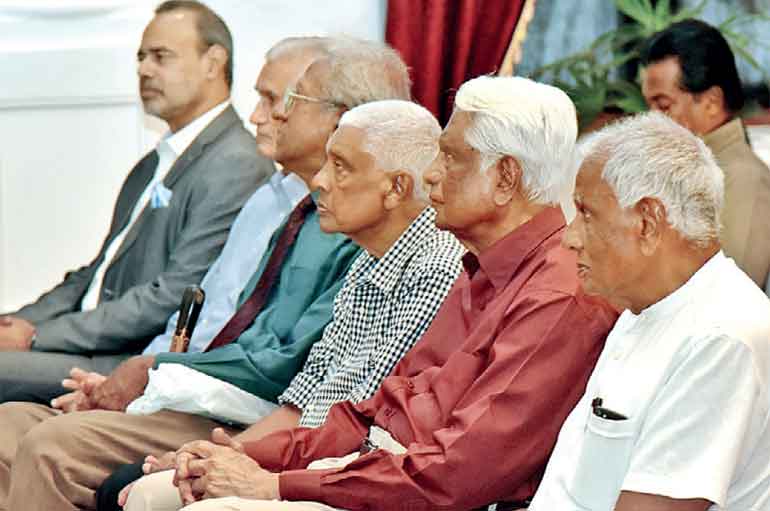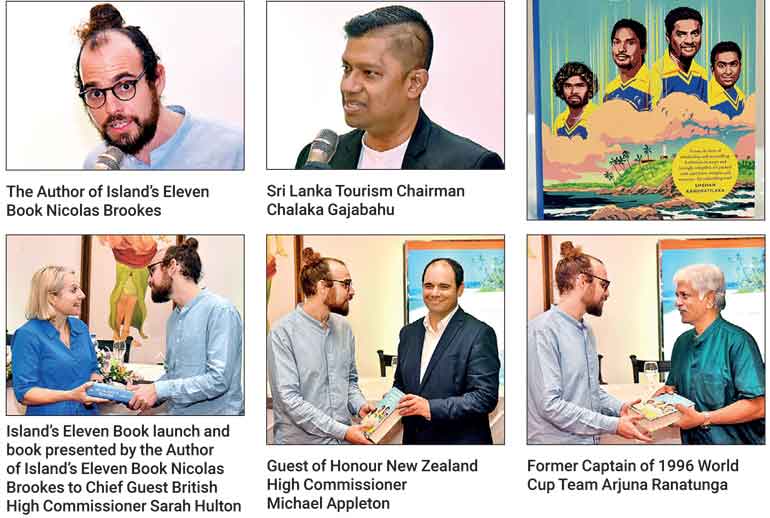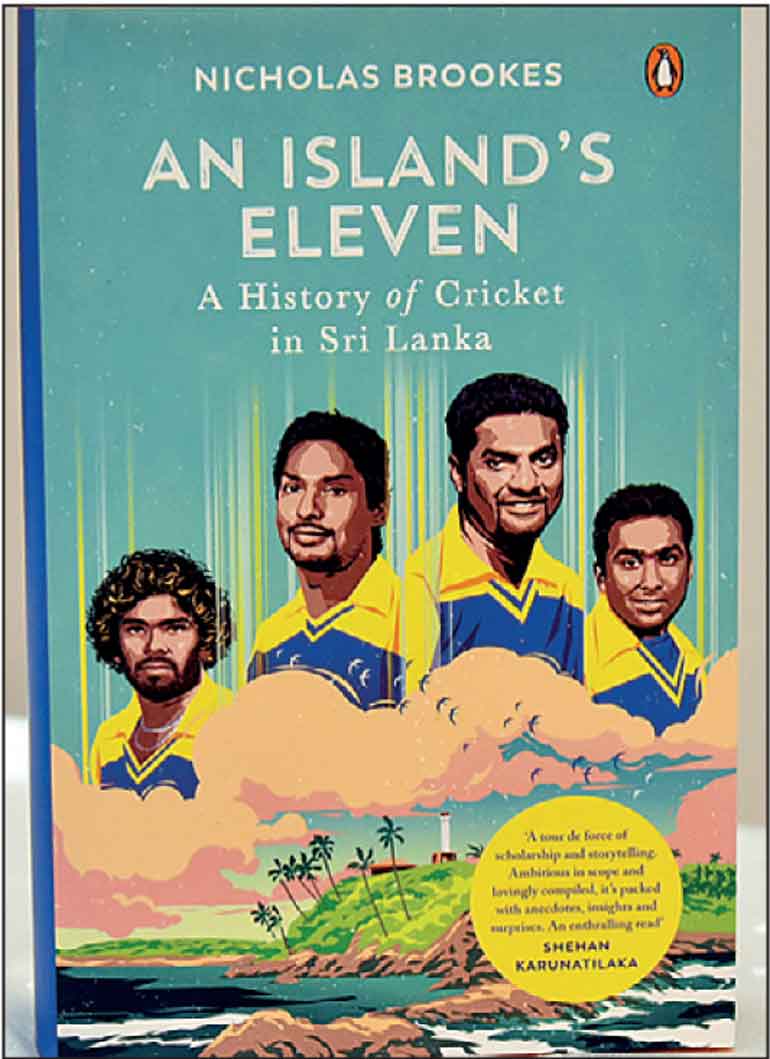Saturday Feb 21, 2026
Saturday Feb 21, 2026
Thursday, 4 May 2023 00:56 - - {{hitsCtrl.values.hits}}

By Sa’adi Thawfeeq
Nicholas Brooke, author of the award-winning book “An Island’s Eleven – a History of Cricket in Sri Lanka” said at his book launch held at the Mt. Lavinia Hotel on Tuesday that it was the love of the game and a deep love for the island that inspired him to write it.
“It was the love of the game that brought me here and I left with a deep love for the island which will remain part of me for the rest of my life,” he told a distinguished audience of past Sri Lankan cricketers and cricket officials that included Sri Lanka’s 1996 World Cup winning captain Arjuna Ranatunga and Michael Tissera, who inspired a generation of cricketers with his astute captaincy and batting skills in the pre-Test era.
Brookes thanked Sri Lanka Tourism for hosting the historic event and those who helped him bring the book out.
“I’ve spoken to so many cricket fans from England and India, Australia and South Africa and they agree on one thing. There is nowhere better place in the world to watch cricket than in Sri Lanka,” said Brookes addressing the gathering. “Can any ground, anywhere get close to Galle, enclosed on one side by the ocean, and the ancient Dutch Fort with the rising clock tower in its shadow. Surely, one of cricket’s most potent symbols. Nowhere else on earth is an international sports stadium and an UNESCO heritage site stand side by side. In my own experience there is no friendlier place to watch cricket.”
“Sri Lankan cricket is stocked with great stories and incredible performances whether it was Wettimuny at Lord’s, Murali at the Oval, Arjuna and Aravinda at Lahore, there is so much to look back on. So many magical moments to look upon. So why should I be writing on Sri Lankan cricket? That’s a question I cannot answer.”
Sri Lanka Tourism chairman Chalaka Gajabahu whilst admitting that he was a huge cricket fan, said, “Sri Lanka is a resilient nation no matter what happens. If I am to draw a cricketing synergy to tourism and Sri Lanka right now, what we went through especially in the last 3-4 years, first it was the Easter (bombing), then it was the COVID pandemic and of course, I call it the ‘Peaceful Revolution’. Where can you have a peaceful revolution and go and have a bath in the President’s swimming pool? Then waking up from that crisis, all over the world for the next 4-5 months we were highlighted as the red nation, a dangerous place to visit. We took this challenge with a new captain to fight it out, with nine wickets down for zero runs getting ready for the second innings. I think we batted the first innings and we are getting ready for the second innings to bat on with Sri Lanka and move the country ahead.”
The Guest of Honour, New Zealand’s High Commissioner in Sri Lanka Michael Appleton said that he was invited to the occasion for two reasons, one for his love for Sri Lanka and the other, his love for cricket.

“Nicholas’ book is about triumph over adversity with the middle guy winning in the end,” said Appleton. “The history of men’s cricket is about three giants Australia, England and India who had endless resources, endless facilities to produce players in search of triumph to knock them off the top rung. Almost always one of those three are the best team in the world, but sometimes it’s not very often a smaller country has overcome them.”
“Most famously the West Indies through the seventies and nineties. But I think some of the great underdog stories that I’ve read is Sri Lanka’s triumph over adversity, the 1996 World Cup was hugely important to my version of Sri Lanka. I was only 13, but over the years preceding that, what I saw was the slow improvement of the Sri Lanka side from almost obscurity to world champions’ status. In 1995 I remember when Sri Lanka won its first overseas Test match ever (beat New Zealand at Napier), a year before Sri Lanka became the world champions. This was an astonishing and meteoric rise and it was against Australia the best cricket team. Why was it possible? There are a few things. One is for a small country to succeed they had to use every piece of resource they had. They had to be efficient, and it also required innovation which is crucial to succeed as underdogs.”
The book discusses many dimensions of Sri Lanka’s cricket, brought to life through the author’s writing and his works. Brooke carried out extensive research and interviewed several people connected with cricket and spent two years in Sri Lanka to study cricket, and went through archives, spending hours and hours at the national library to bring out his award winner.
British High Commissioner in Sri Lanka Sarah Hulton, OBE was the chief guest at the occasion.
Pix by Ruwan Walpola
